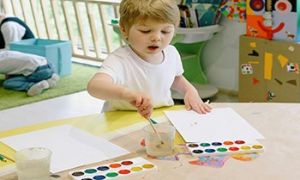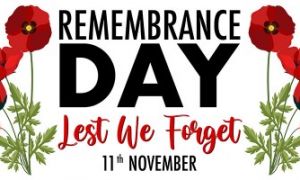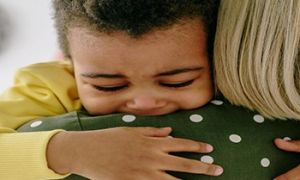

The observation cycle doesn’t need to be complicated. At its heart, it’s simply a way of noticing, understanding, and responding to children’s learning. These prompts are designed to support educators at every stage—keeping documentation meaningful, manageable, and connected to children’s identities.
Building secure, trusting relationships is the heart of early childhood education, and EYLF Outcome 1.1 places this at the centre of children’s learning and well-being. Before children can explore, communicate, or engage confidently with others, they must first feel safe, supported, and emotionally held within their environment.
Learn how to understand, support, and document EYLF Outcome 1.1 with clear examples, practical strategies, and observation wording that help educators build secure, trusting relationships in early childhood settings.
A: No. There is no requirement in the National Regulations, the EYLF, or ACECQA guidance that says educators must add EYLF outcome numbers, sub‑outcomes, or codes to observations. Linking is optional, not mandatory.
Documentation should support children’s learning, not overwhelm educators. When linking becomes a tick‑box exercise, it loses meaning and adds unnecessary workload. This article breaks down what’s actually required, what’s optional, and how to use EYLF links only when they genuinely add value.
In early childhood settings across Australia, the Early Years Learning Framework (EYLF) is more than a document; it’s a living, breathing presence in children’s play. When educators truly see the EYLF in action, they witness a tapestry of learning, relationships, and identity unfolding moment by moment. This article explores how the EYLF manifests through play and how educators can deepen their observations, documentation, and advocacy by tuning into its rhythms.
This mapping tool is designed to help educators translate everyday moments into meaningful documentation aligned with the EYLF. By spotlighting real examples of children’s play, interactions, and discoveries, it supports reflective practice and strengthens outcome-based planning.
The EYLF provides a foundation for quality early childhood education in Australia. At its heart are the five learning outcomes, which guide educators in supporting children’s holistic development. These outcomes—Identity, Community, Well-being, Learning, and Communication—are essential, but remembering them in order can sometimes be tricky. To make them easier to recall, educators can use creative strategies such as mnemonics, visual aids, storytelling, and interactive activities. This article explores fun and practical methods to embed the outcomes into everyday practice.
Here’s an educator-friendly EYLF V2.0 Reference Sheet designed for quick use in planning, documentation, and reflection. It’s structured to support intuitive linking between observations and outcomes, with simplified language and examples to spark educator insight.
Documentation walls are more than displays—they are living narratives of children’s learning, identity, and community. When aligned with the Early Years Learning Framework (EYLF), they become powerful tools for reflection, family engagement, and sector advocacy. Below are modular, emotionally intelligent wall concepts for each of the five EYLF Learning Outcomes, adaptable to your centre’s style, cultural symbolism, and children’s voices.
A rotation calendar is a powerful tool for educators to intentionally schedule and manage the refresh of learning environments, materials, and activities. When paired with a program plan, it ensures that both the physical setup and the learning journey are purposeful, engaging, and aligned with the EYLF.
In early childhood education, the phrase “school readiness” often conjures images of children sitting quietly at tables, practicing handwriting or phonics. But this narrow view overlooks the rich, embodied ways that young children learn. As research and practice continue to affirm, four-year-olds don’t need to sit still to be ready for school, they need to move, explore, and play.
 Here is the list of the EYLF Learning Outcomes that you can use as a guide or reference for your documentation and planning. The EYLF… Read More
Here is the list of the EYLF Learning Outcomes that you can use as a guide or reference for your documentation and planning. The EYLF… Read More
 The EYLF is a guide which consists of Principles, Practices and 5 main Learning Outcomes along with each of their sub outcomes, based on identity,… Read More
The EYLF is a guide which consists of Principles, Practices and 5 main Learning Outcomes along with each of their sub outcomes, based on identity,… Read More
 This is a guide on How to Write a Learning Story. It provides information on What Is A Learning Story, Writing A Learning Story, Sample… Read More
This is a guide on How to Write a Learning Story. It provides information on What Is A Learning Story, Writing A Learning Story, Sample… Read More
 One of the most important types of documentation methods that educators needs to be familiar with are “observations”. Observations are crucial for all early childhood… Read More
One of the most important types of documentation methods that educators needs to be familiar with are “observations”. Observations are crucial for all early childhood… Read More
 To support children achieve learning outcomes from the EYLF Framework, the following list gives educators examples of how to promote children's learning in each individual… Read More
To support children achieve learning outcomes from the EYLF Framework, the following list gives educators examples of how to promote children's learning in each individual… Read More
 Reflective practice is learning from everyday situations and issues and concerns that arise which form part of our daily routine while working in an early… Read More
Reflective practice is learning from everyday situations and issues and concerns that arise which form part of our daily routine while working in an early… Read More
 Within Australia, Programming and Planning is reflected and supported by the Early Years Learning Framework. Educators within early childhood settings, use the EYLF to guide… Read More
Within Australia, Programming and Planning is reflected and supported by the Early Years Learning Framework. Educators within early childhood settings, use the EYLF to guide… Read More
 When observing children, it's important that we use a range of different observation methods from running records, learning stories to photographs and work samples. Using… Read More
When observing children, it's important that we use a range of different observation methods from running records, learning stories to photographs and work samples. Using… Read More
 This is a guide for educators on what to observe under each sub learning outcome from the EYLF Framework, when a child is engaged in… Read More
This is a guide for educators on what to observe under each sub learning outcome from the EYLF Framework, when a child is engaged in… Read More
 The Early Years Learning Framework describes the curriculum as “all the interactions, experiences, activities, routines and events, planned and unplanned, that occur in an environment… Read More
The Early Years Learning Framework describes the curriculum as “all the interactions, experiences, activities, routines and events, planned and unplanned, that occur in an environment… Read More

Here’s a curated set of 20 child-centered art activity instructions designed to foster creativity, autonomy...
See more...
On the 11th Of November is Remembrance Day. The following provides Remembrance Day Templates and FREE...
See more...
Helping toddlers and preschoolers build emotional vocabulary is like giving them a toolbox for life—they...
See more...© 2009-2026 Aussie Childcare Network Pty Ltd. All Rights Reserved.

